PONDUS: A Simple Solution for Thermal Hydrolysis
Quick Links
Keep the Thermal Hydrolysis Process Simple, Affordable, Safe for All Sized Plants
As a Cost-Effective Choice, PONDUS™ Requires Little Day-To-Day Plant Supervision
PONDUS, a thermal/alkaline hydrolysis process, is designed for solids from 4% to 12% and uses a combination of caustic soda (NaOH) and low grade heated water (140 °F to 160 °F) to break down the cell walls.
The passing of the Inflation Reduction Act in late 2022 is a great incentive for facilities to install a biogas process like PONDUS and take advantage of the new Investment Tax Credit (ITC).

Awards Won:
- 2019 Frost & Sullivan Product Leadership Award for the North American Sludge Treatment
- 2018 Utility of the Future Today Recognition Program for the Kenosha WWTP Optimization Project
- 2017 W&WD Top Project for the Kenosha WWTP Optimization Project
- 2017 ACEC Grand Award Winner for the Kenosha WWTP Optimization Project
- Reduce Viscosity of Thickened WAS up to 80%
- Reduce Anaerobic Digestion Volume up to 50%
- Reduce Biosolids Disposal Costs up to 30%
- Increase Biogas Production up to 35%
- Reduce Polymer Consumption at Dewatering up to 20%
- Reduce Digester Foaming
Request a Sample Analysis or Pilot Test
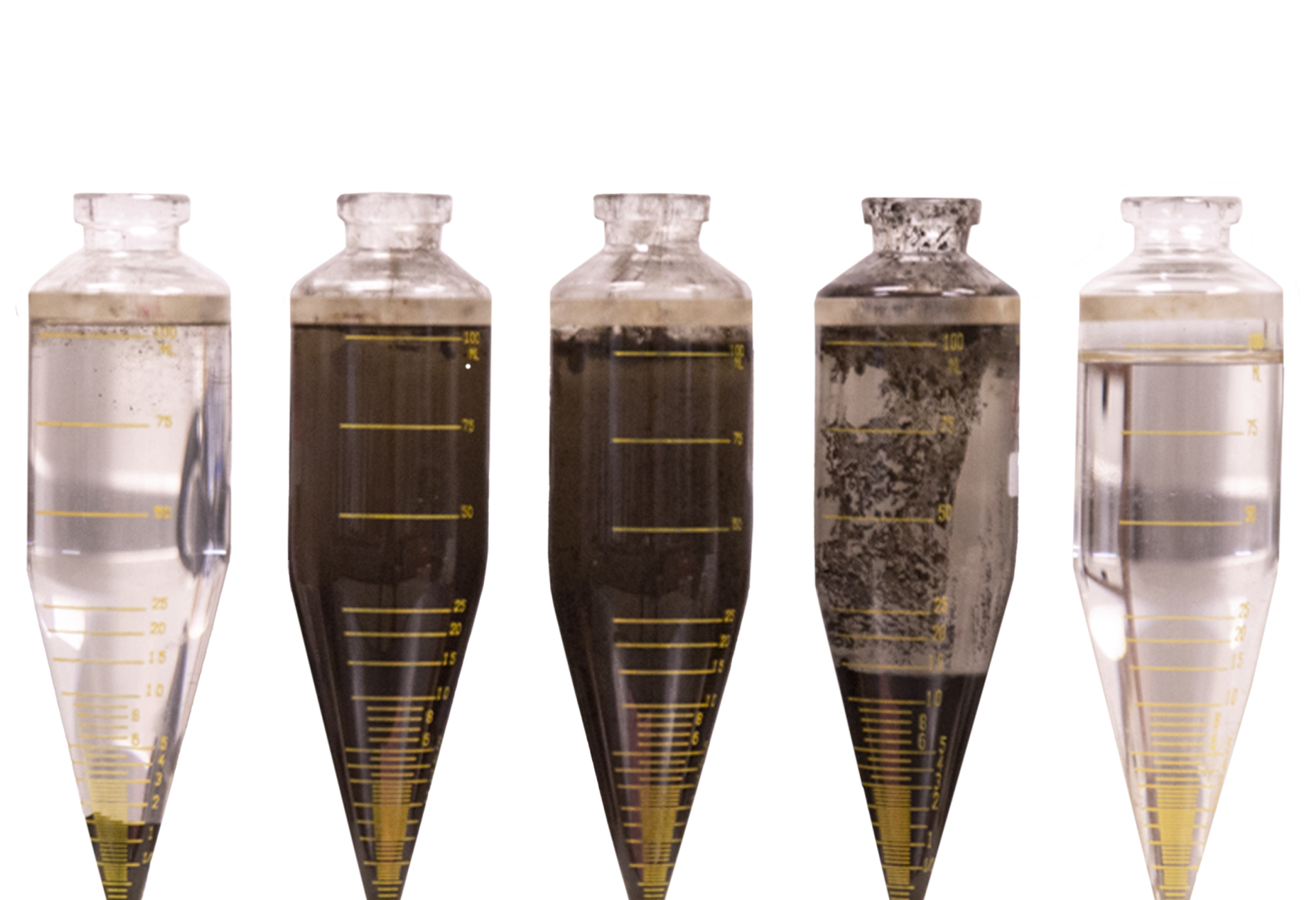
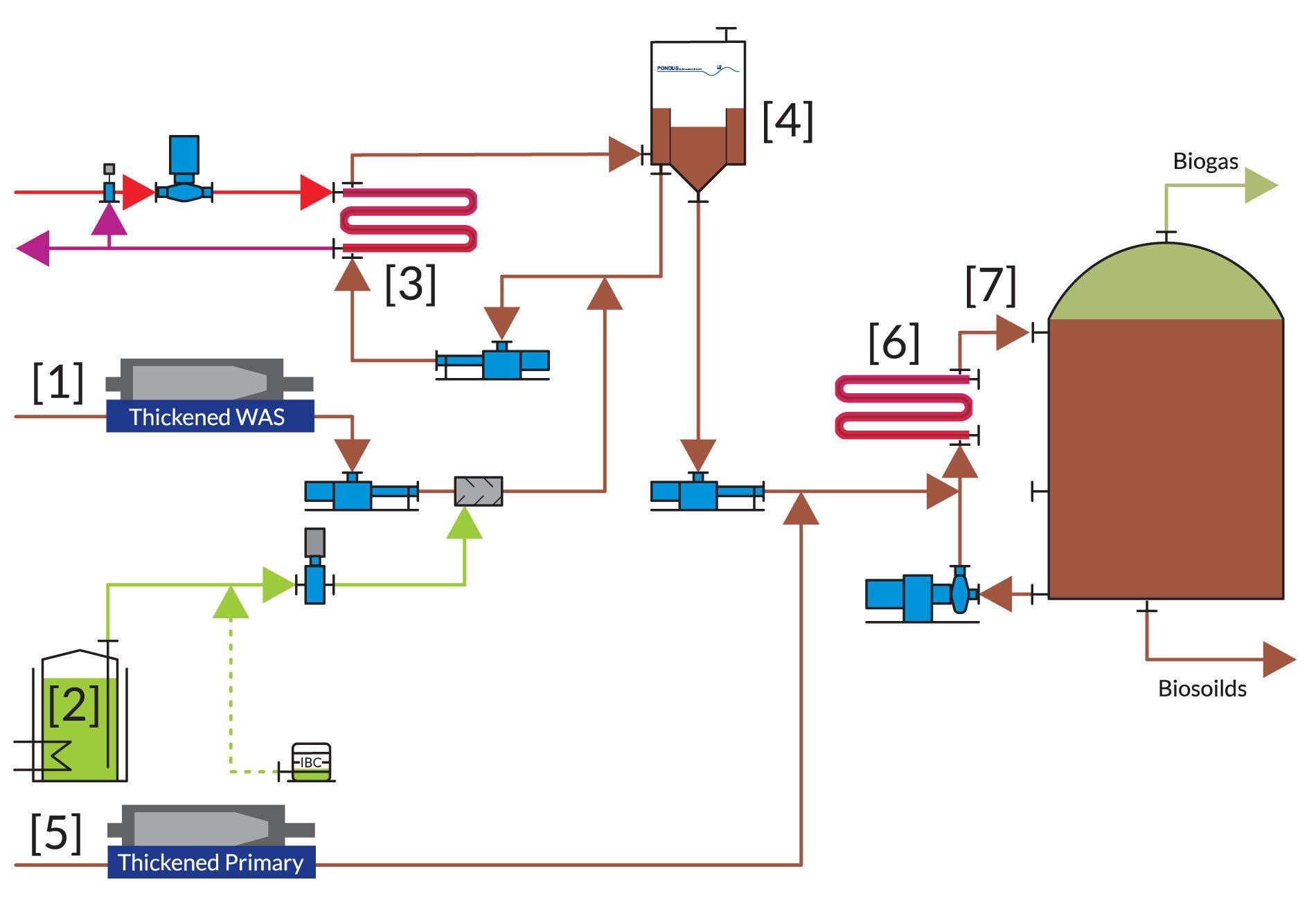
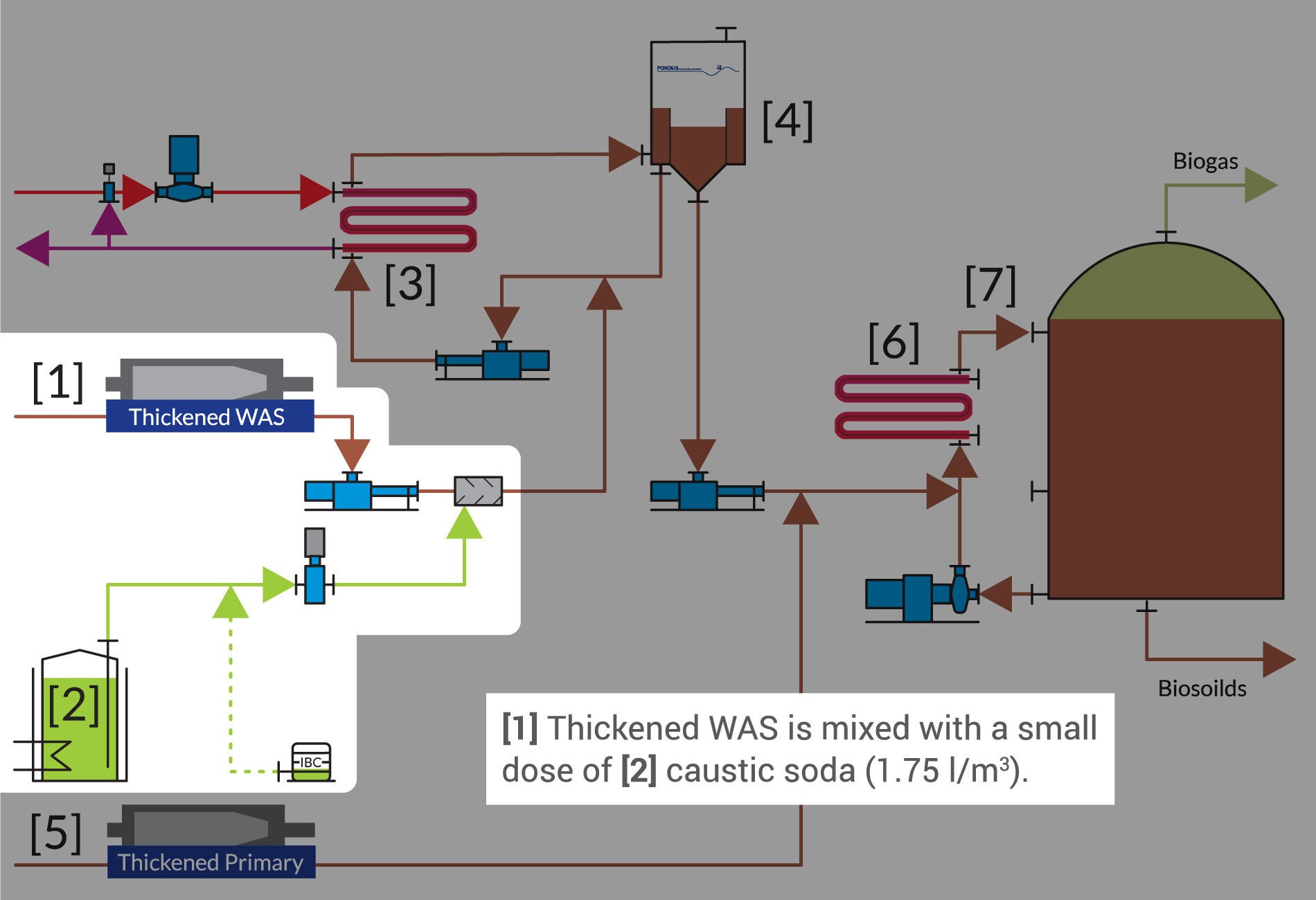
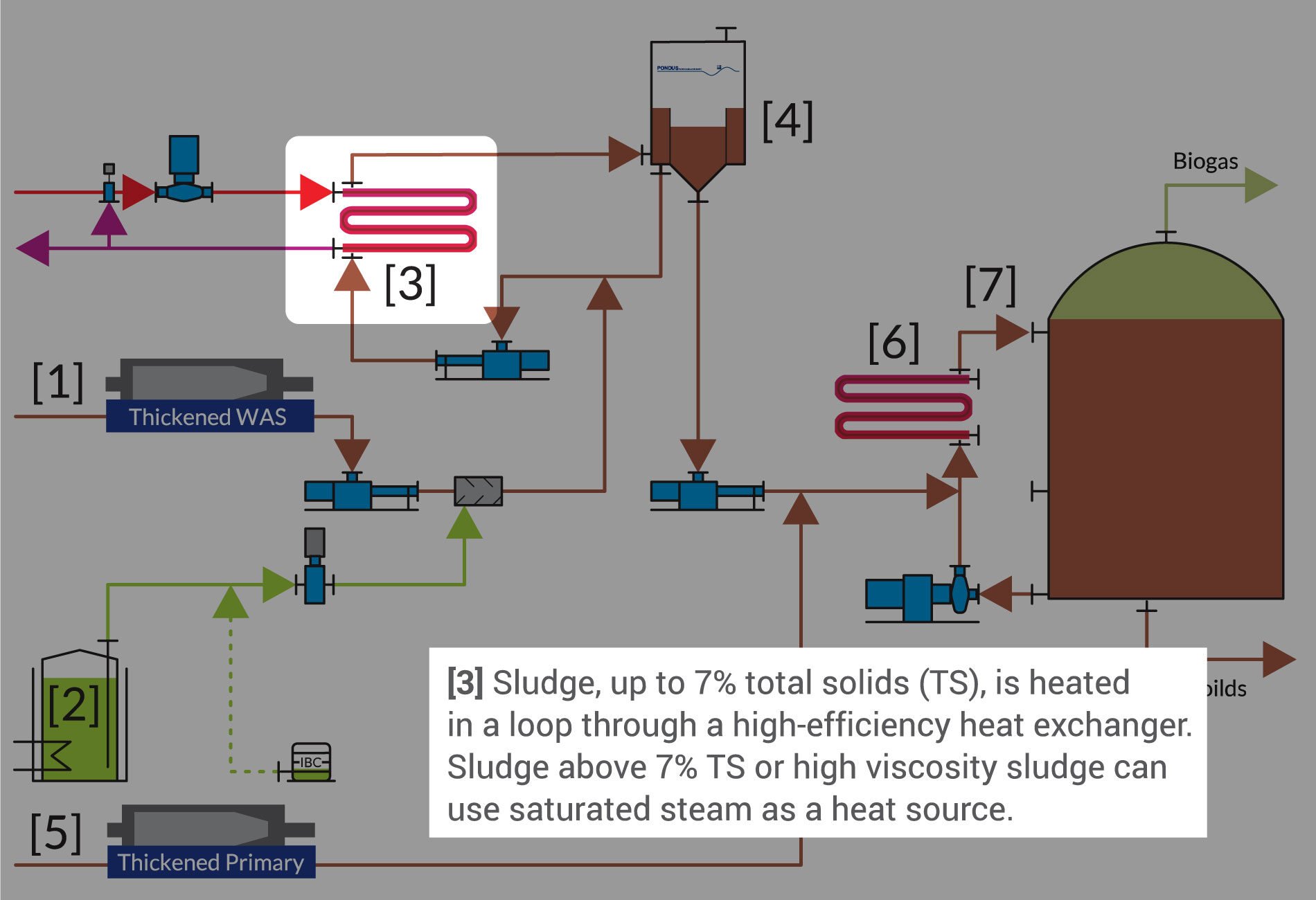
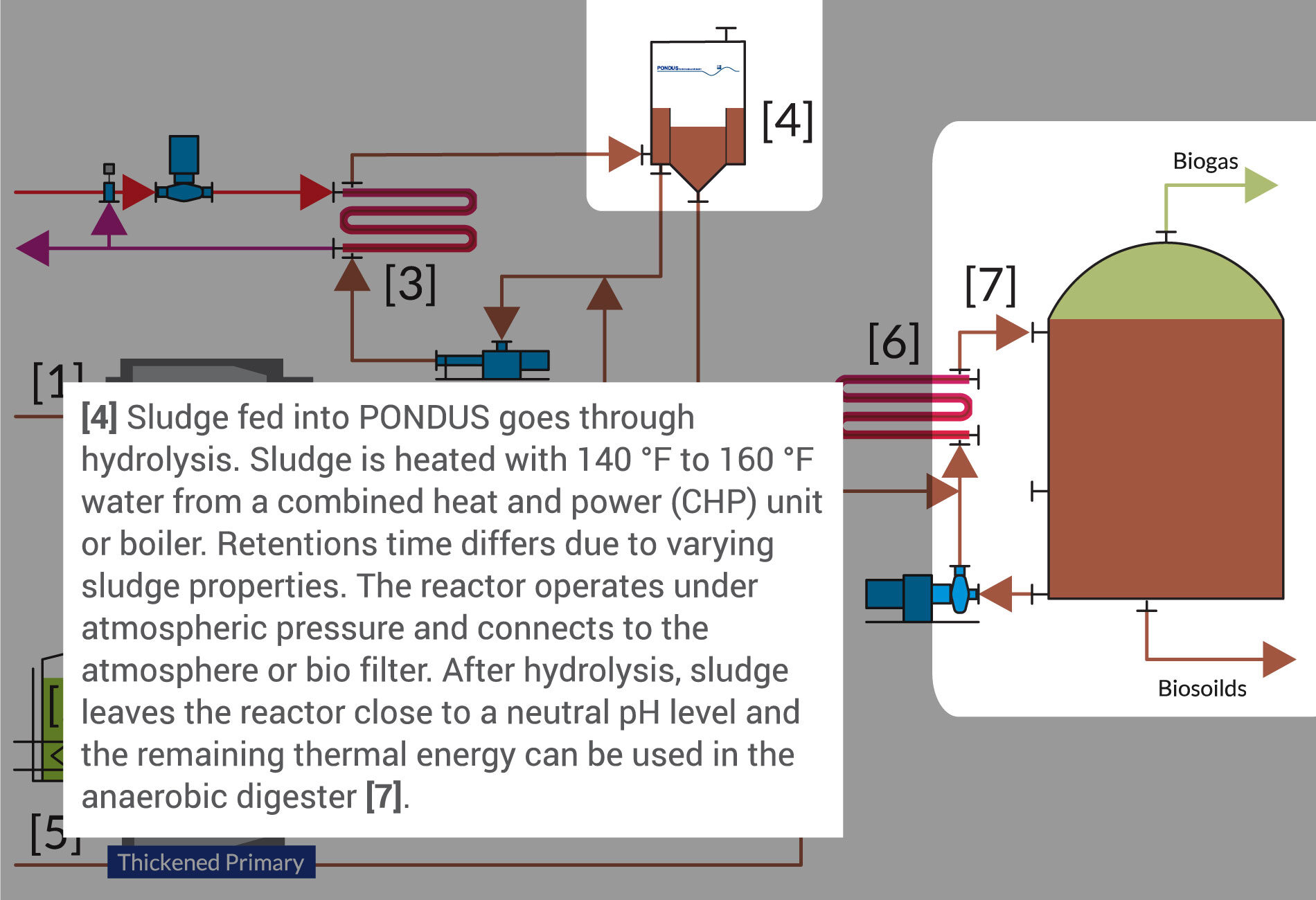
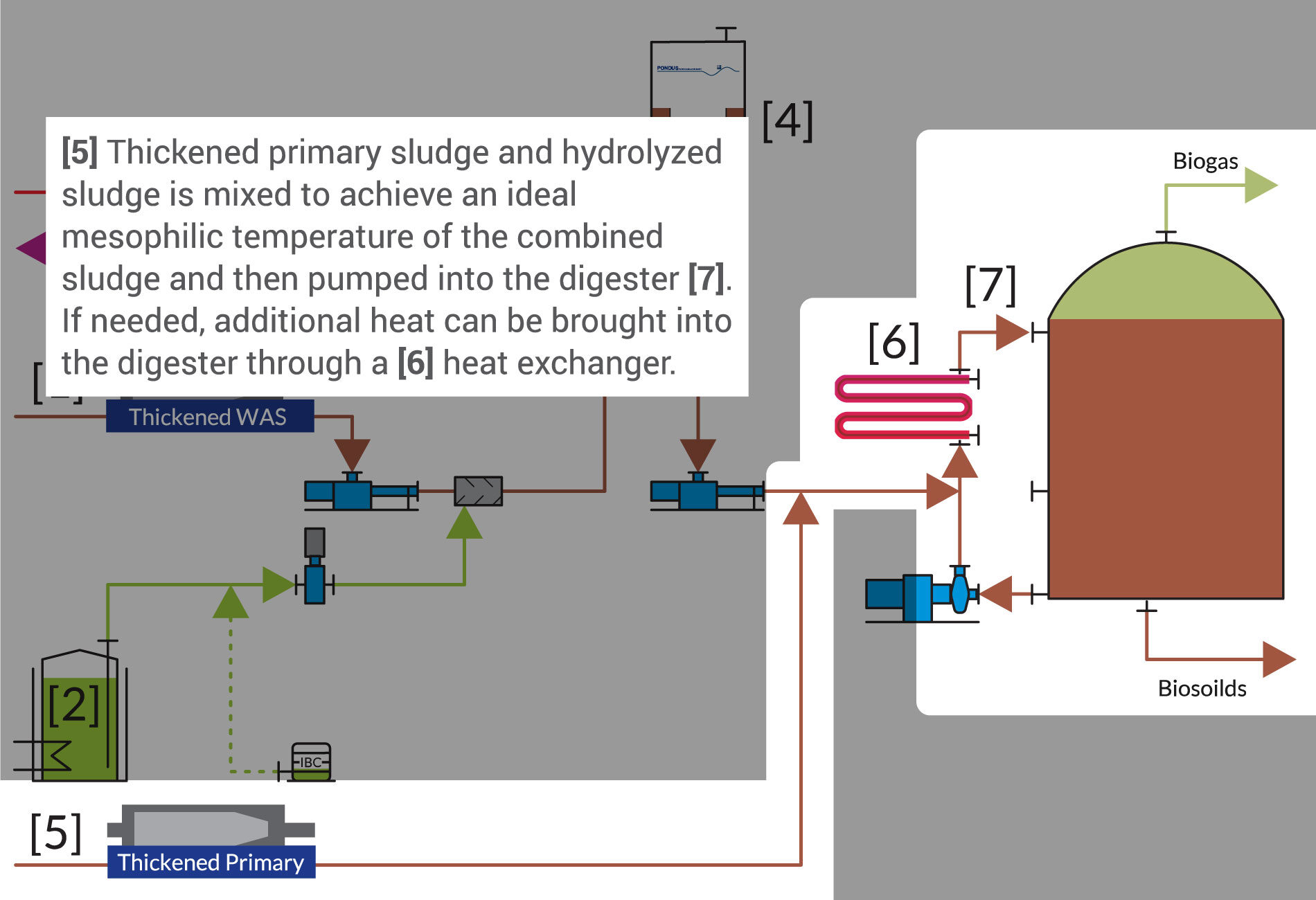
PONDUS is Simple to Operate
Compact, small footprint solution for all sized plants.
- Hydrolysis reactor operating under atmospheric pressure
- High-efficiency hot water heat exchanger
- Chemical dosing station
- Progressive cavity pumps
- Instrumentation and controls
Saturated steam option for sludge above 7% total solids (TS) or with high viscosity.
Typical maintenance includes:
- Pump maintenance
- Heat exchanger cleaning

✕
PONDUS is a Cost-Effective Choice
- Simple operation requires little day-to-day plant supervision
- Fully automatic process runs 24/7 year-round
- 99% uptime; minimal estimated downtime for maintenance and repairs
- Designed using standard industrial control system equipment
- Compact; small footprint solution for all sized plants
Literature
Case Studies
Videos
✕